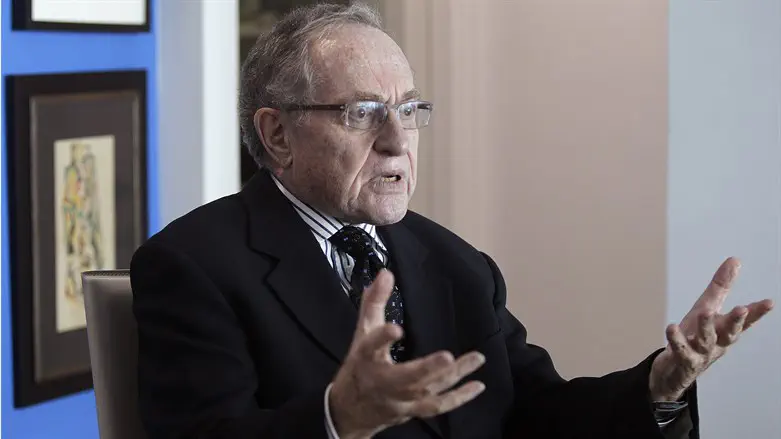
Leading US attorney Prof. Alan Dershowitz told Galei Tzahal's Morning News Show with Efi Triger that the government's planned reforms to Israel judicial system will open the Jewish State to greater international criticism and make it more difficult for supporters like him to defend Israel.
"Israel's democracy is not in danger," Dershowitz stated at the outset. "The reforms are designed to improve democracy."
"What's in danger are civil liberties, minority rights," he explained, adding that if he was in Israel he would join the protests against the judicial reforms.
"I think it will weaken Israel's legal Iron Dome," Dershowitz said. "I think the Supreme Court of Israel has been a very important factor in why the International Criminal Court doesn't have jurisdiction over Israel, because of what's known as complementarity. I do think it will make it much more difficult for people like me, who try to defend Israel in the international court of public opinion, to defend them effectively."
"One of the major weapons we have had has been the Supreme Court: even when the Knesset or the prime minister or the military sometimes oversteps their bounds, it's the Supreme Court that has most often imposed civil liberties and basic human rights. And so, it would be a tragedy to see the Supreme Court weakened," he said.
When asked if he thought Netanyahu's current approach to judicial reform was a response to his ongoing trial, Dershowitz replied: "I don't think so. I think it's that he had to put together a coalition, and the coalition required that he make some compromises. The same thing is happening in the United States today. Today it's the left who wants to weaken the Supreme Court" in the US, he said. "I wish that Prime Minister Netanyahu would not allow his right-wing to dictate to him what the appropriate balance should be."
Justice Minister Yariv Levin last week unveiled a four-step plan to reforms Israel's judicial system, placing greater limits on the Supreme Court's ability to choose its own justices and to strike down laws passed by the Knesset.
